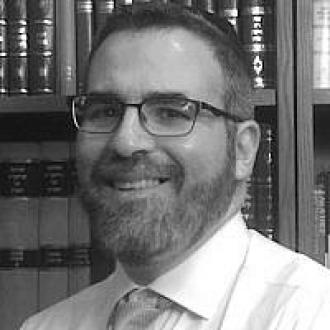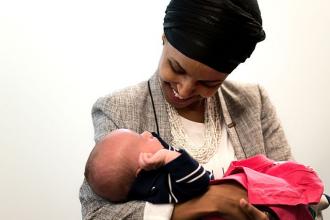The case was likely the first of its kind, and Michigan is one of three places in the world offering a chance at life on Earth after death.
CLINTON TOWNSHIP, MI — A British teenager who died of a rare form of cancer could one day be “reborn” half a world away, healthy and cured of her disease, after a judge in London’s High Court cleared the way for her body to be frozen and preserved at a suburban Detroit cryonics facility. The teen, identified in court documents only as JS, is one about 150 patients frozen by The Cryonics Institute in Clinton Township.
In a decision on what may have been the first case of its kind, High Court Justice Peter Jackson made clear the girl had written eloquently of her desire to be cryogenically frozen and that his decision was guided by her wishes, rather than the controversial scientific theory of cryonics, which he said is “speculative and controversial” and mired in ethical issues.
“I have been asked to explain why I want this unusual thing done. I’m only 14 years old and I don’t want to die, but I know I am going to. I think being cryopreserved gives me a chance to be cured and woken up, even in hundreds of years’ time. I don’t want to be buried underground,” the teen wrote.
“I want to live and live longer and I think that in the future they might find a cure for my cancer and wake me up. I want to have this chance. This is my wish.”
After JS died on Oct. 17, her body was packed in dry ice and flown to Michigan, where it arrived on Oct. 25. For a cost of about $46,000 U.S., technicians at the Clinton Township facility placed the patient’s body in a computer-controlled chamber to cool to the temperature of the liquid nitrogen inside of it, according to information on The Cryonics Institute website. That procedure takes about 24 hours, and then the patient was placed in a cryostat for long-term cryonic storage, according to the post.
Awaken to a “Desperate Situation”?
CNN, which only recently obtained the judgment and documents upholding the teen’s wishes, reported that her divorced parents were initially split on whether to allow the procedure.
Her father, who did ultimately change his mind, worried that if cryonics worked, his daughter could be brought back to life perhaps 200 years in the future, when she “may not find any relative and she might not remember things and she may be left in a desperate situation given that she is only 14 years old and will be in the United States of America,” according to court documents.
The judge noted that “no other parent has ever been put in his position” but said JS was a “bright, intelligent young person who is able to articulate strongly held views on her current situation” and was savvy enough to investigate cryonics and start legal action.
Bioethics Questions Loom
Clinton Township is one of only three places in the world that offers full-body cryonics services. Others are in Alcor, Arizona and KrioRus, which is based in Russia.
People have been successfully freezing and thawing eggs and sperm in reproductive planning for decades, but a cryonics procedure that offers the hope of life on Earth after death raises new challenges for courts and ethicists.
Larger questions loom. Even if people can be cryogenically frozen and resurrected years in the future later when a cure is found for what killed them — and there’s no way to test whether that’s actually possible — should they?
Whole-body cryonics raises thorny ethical questions, such as who is financially responsible for frozen bodies if the facilities storing them run out of money or if the technology goes awry, and more vexing bioethics issues.
Because restoring life would require a synchronization of sorts of cells, blood vessels, organs and neurons, scientists are skeptical a patient's body and brain would function after thawing as it did before cryopreservation. There is no guarantee thawed patients would be conscious of who they are — or conscious at all — or have any knowledge of their prior existence
And, as the British teen’s father worried, what kind of existence would they come back to in a foreign time and place? Some bioethicists suggest isolation, loneliness, depression and illness could very well await people who are revived, and others say that wanting to live longer is selfish and burdens an already overpopulated planet with limited resources.
Just Like CPR
The futurists in the cryonics industry say it’s stopgap between today’s diseases and tomorrow’s cures.
“We see it as an extension of emergency medicine,” Max More, president and chief executives of the cryonics facility in Arizona, told BBC. “We’re just taking over when today’s medicine gives up on a patient. Think of it this way: 50 years ago if you were walking along the street and someone keeled over in front of you and stopped breathing you would have checked them out and said they were dead and disposed of them.
“Today we don’t do that, instead we do CPR and all kinds of things. People we thought were dead 50 years ago we now know were not. Cryonics is the same thing, we just have to stop them from getting worse and let a more advanced technology in the future fix that.”
More admitted scientists don’t know if the dead can be awoken from the frozen state, but he said the science of tissue regeneration is steadily advancing.
“Nobody really knows when they’ll be able to wake these patients up, or if they’ll be able to at all,” More said.
When pressed for a guess by BBC about how long patients might remain frozen, he settled on 50 to 100 years, adding, “but it’s really impossible to say. We probably don’t even know what repair technology would be used.”
Barry Fuller, professor in surgical science and low-temperature medicine at University College London, told CNN it’s impossible to know if whole-body cryopreservation will work because it hasn’t been applied to large structures, such as human kidneys for transplantation
“This is why we have to say that at the moment we have no objective evidence that a whole human body can survive cryopreservation with cells which will function after rearming,” he said.
The Cryonics Institute said on its website that “no one can guarantee success, because no one can guarantee the future.”














